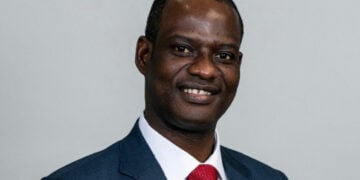Richflood Foundation, the implementing partner for Women in Mining Africa (WiM-Africa), has expressed deep concern about the recent arrests of nursing mothers, teenagers, and children at illegal mining sites across Niger State, as reported by some media.
In an interview granted to journalists in Abuja recently, the team of Richflood Foundation and WiM-Africa said the recent raids conducted by the Niger State Ministry of Mineral Resources, resulting in the arrest of these vulnerable groups, highlight the urgent need for comprehensive socio-economic interventions in mining communities.
The executive director of Women in Mining Africa (WiM-Africa), Dr. Comfort Asokoro-Ogaji, said: “While we commend the Niger State government‘s efforts to curb illegal mining activities and protect natural resources, we urge a compassionate and sustainable approach to address the root causes of such issues.”
“As an organisation working with WiM-Africa and pursuing its objectives in Nigeria through the ‘Voices of Children from the Pits’ Programme, we are dedicated to promoting women‘s and children‘s welfare in mining areas.
“We now want to acknowledge the compassionate decision made to release nursing mothers and elderly women promptly. These individuals must be treated with dignity and provided with the necessary support to transition from hazardous and illegal mining activities.
In the same vein, the prevalence of women and children in illegal mining underscores the need for targeted educational and economic support programmes.
According to her, Richflood Foundation and WiM-Africa are committed to implementing the „Voices of Children from the Pits“ (VOC) programme, which aims to rescue children from hazardous mining sites, raise awareness about the dangers of child labor, and facilitate access to education for these vulnerable children.
“Following the ongoing VOC programme, we propose a collaborative effort with the Niger State government to organise a workshop on August 26, 2024. This workshop will aim to raise awareness among women in mining communities about the importance of education for their children and gather information about affected children to facilitate their enrollment and retention in formal schooling systems.











